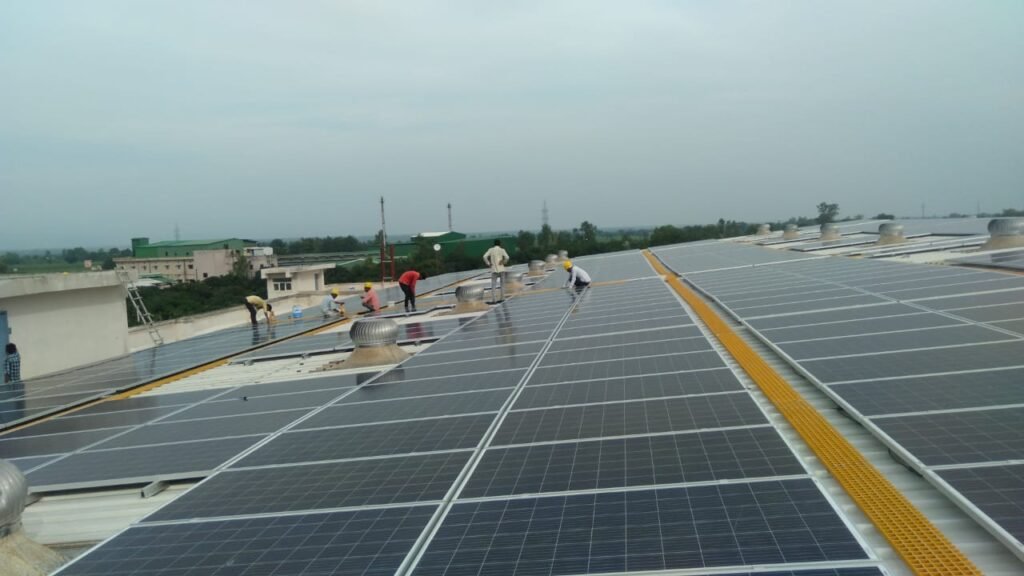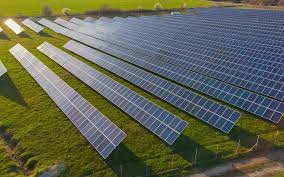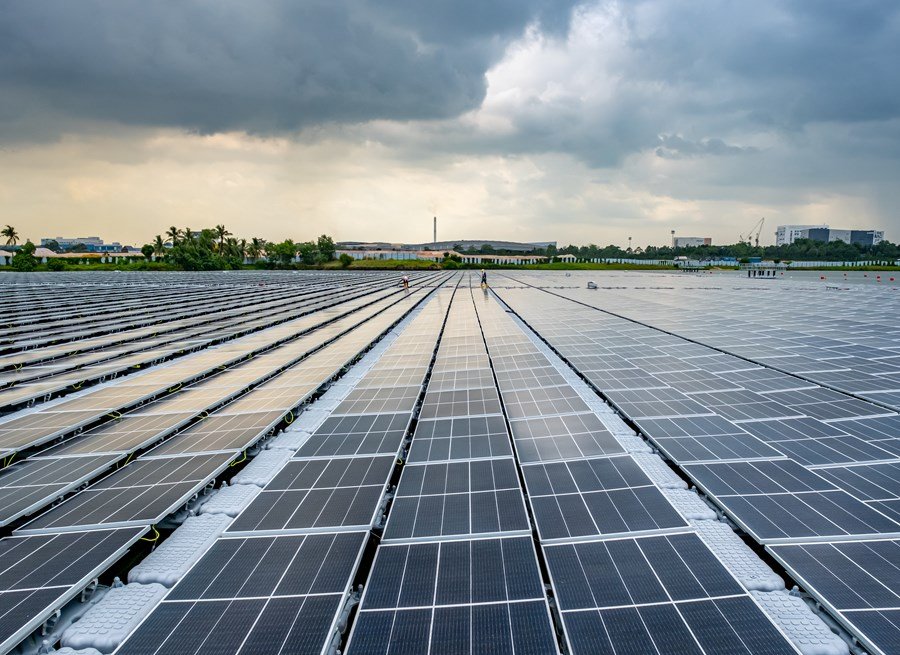Industrial Solar

Industrial solar refers to the use of solar energy systems to meet the energy needs of large-scale industrial facilities and manufacturing operations. These solar installations are designed to provide clean and sustainable power to industries, which often have high energy demands. Here are key aspects and information about industrial solar:
1. Scale and Capacity: Industrial solar installations are typically much larger in scale compared to commercial or residential solar systems. They can range from several hundred kilowatts to multiple megawatts in capacity, depending on the energy requirements of the industrial facility.
2. Solar Panel Arrays: Industrial solar installations consist of extensive arrays of photovoltaic (PV) solar panels. These panels capture sunlight and convert it into electricity using semiconductor technology.
3. Energy Generation: Industrial solar systems generate electricity when exposed to sunlight. The electricity produced can be used to power various industrial processes, machinery, equipment, lighting, and HVAC systems within the facility.
4. Energy Cost Reduction: One of the primary reasons industries invest in solar is to reduce their energy costs. By generating electricity from solar panels, industrial facilities can lower their reliance on grid power and potentially achieve substantial long-term savings on utility bills.
5. Environmental Benefits: Industrial solar is an environmentally friendly energy source. It produces no greenhouse gas emissions or air pollutants during electricity generation, contributing to reduced carbon emissions and environmental sustainability.
6. Energy Security: Solar power can provide industrial facilities with a degree of energy security by diversifying their energy sources. This can be especially important for industries that rely on uninterrupted power for critical processes.
7. Government Incentives: Many governments offer incentives and financial support to encourage industrial solar adoption. These incentives may include tax credits, grants, feed-in tariffs, and net metering arrangements that benefit large-scale solar projects.
8. Long-Term Investment: Industrial solar installations are considered long-term investments, with solar panels typically having a lifespan of 25 years or more. Over time, the initial capital expenditure on solar panels and infrastructure can be recouped through energy savings and potential revenue from excess energy production.
9. Grid Connection and Net Metering: Industrial solar systems are often connected to the electrical grid. This allows excess energy generated by the solar system to be fed back into the grid, and industries may receive compensation for the surplus energy they provide. It also ensures a reliable energy supply when sunlight is not available.
10. Customization: Industrial solar solutions are tailored to meet the specific energy demands of each facility. Factors such as energy consumption patterns, available space, and the need for energy storage or backup systems are considered in the design of the solar installation.
11. Maintenance: Solar panel systems require minimal ongoing maintenance. Regular cleaning and occasional inspections are typically sufficient to keep the system operating efficiently. Most industrial solar installations come with warranties and performance guarantees.


